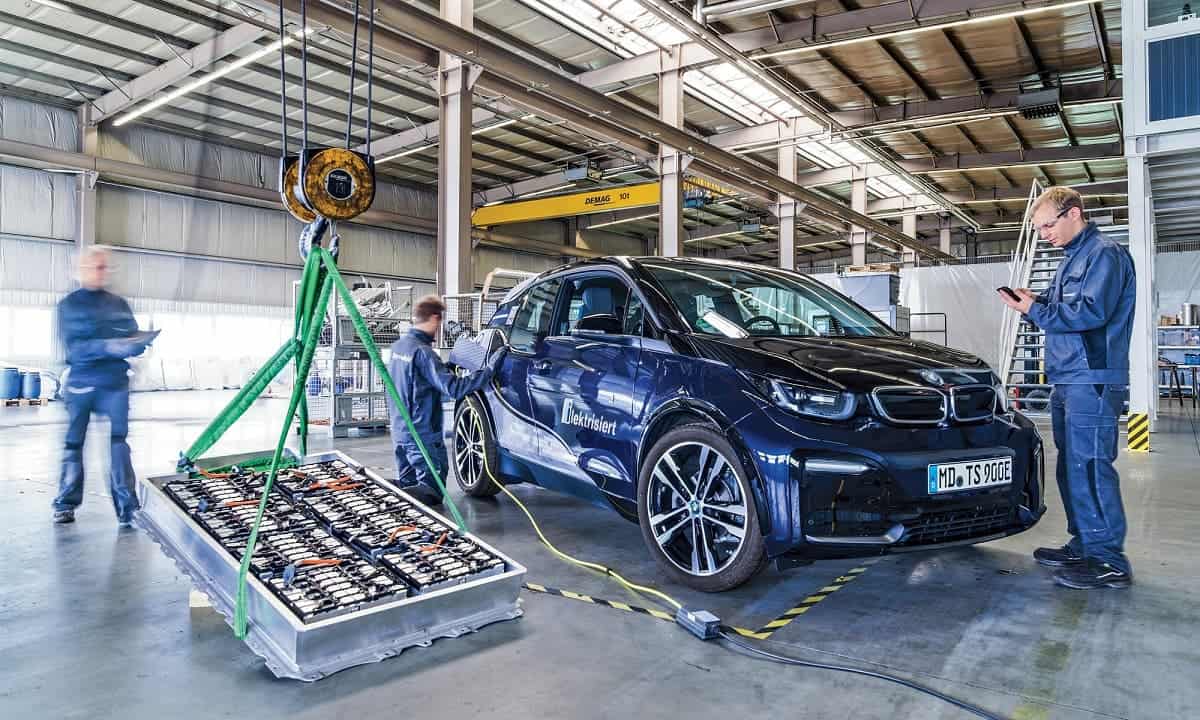
How Long Do Electric Car Batteries Last? Here’s the answer
The electric car industry is facing some major concerns, namely charging anxiety, limited range, and high battery replacement costs. Many people are asking about the cost of replacing electric car batteries, but is this really a widespread problem? How long do electric car batteries last? let’s answer these questions.
98.5{e3fa8c93bbc40c5a69d9feca38dfe7b99f2900dad9038a568cd0f4101441c3f9} of electric cars on the road have not changed the battery

To investigate this further, Recurrent Auto conducted a research study on 15,000 zero-emission cars, examining the state of their batteries. The results were surprising: only 1.5{e3fa8c93bbc40c5a69d9feca38dfe7b99f2900dad9038a568cd0f4101441c3f9} of the cars had replaced their battery due to problems or malfunctions, not including any recalls. Among the models most subject to replacement were the Tesla Model S and Nissan Leaf. Both of which were released over 12 years ago. Despite the large number of these models sold, the low rate of battery replacement is particularly noteworthy.
The research also indicates that battery replacement due to wear and tear occurs after several years and that degradation is slow and continuous. This means that batteries don’t just suddenly collapse after the 8-year or 150,000 km warranty period of some manufacturers.
But what about those who frequently use fast charging? While Recurrent Auto does not yet have a large database of values, they are monitoring the degradation of the batteries of two cars that are regularly subjected to this type of charging. At present, there have been no notable problems reported with either the Hyundai Ioniq 5 or the Ford Mustang Mach-E. Time will tell how much fast charging affects the batteries. But the current data suggests that the risk of having to spend thousands of euros to replace a battery is a distant possibility. This is further confirmed by the owners of the first Tesla Model S, who have driven millions of kilometers without having to replace their battery.
Overall, while concerns about the electric car industry exist, battery replacement costs do not seem to be a widespread issue. The research by Recurrent Auto suggests that battery replacement due to wear occurs after several years. And degradation is slow and continuous. Additionally, the risk of having to replace a battery after frequent fast charging appears to be minimal. Overall, the outlook for the electric car industry appears to be positive.
The Evolution of the Electric Car Industry and the Need for a Battery Revolution
Electric cars have been around since the 1800s. However, it wasn’t until the 1990s that they started gaining traction. The first modern electric car, the General Motors EV1, was introduced in 1996. It was followed by the Toyota Prius, which was the first mass-produced hybrid car.
In the early 2000s, Tesla Motors started producing electric cars that could compete with gasoline-powered cars in terms of performance and range. Other car manufacturers soon followed suit, and the electric car industry began to grow rapidly.
One of the main advantages of electric cars is that they produce zero emissions. This is good for the environment and can help to reduce air pollution. Another advantage is that they are cheaper to operate than gasoline-powered cars.
However, there are also some disadvantages to electric cars. One of the biggest is the range. Electric cars can only go so far on a single charge. And this can be a problem for people who need to drive long distances. Another issue is the cost of the batteries.
The batteries in electric cars are expensive, and they need to be replaced every few years. This can be a significant expense for owners of electric cars. Additionally, the batteries are made from rare and expensive materials. Which can be a problem if demand for electric cars continues to grow.
There are some solutions to these problems. One is to improve the technology of the batteries so that they last longer and are cheaper to produce. Another is to develop new materials that can be used in the batteries.
There is also the possibility of using alternative power sources for electric cars. For example, hydrogen fuel cells could be in use to power electric cars. This would eliminate the need for batteries altogether.
One potential solution to the battery problem is to develop a circular economy for electric car batteries. This means that instead of simply disposing of old batteries, people can recycle and reuse them. They can extract the materials in the batteries and use them to make new batteries or other products. This would reduce the demand for new batteries and also reduce the environmental impact of disposing of old batteries.
Another challenge facing the electric car industry is the infrastructure for charging electric cars. While builders are constructing more charging stations, they still do not meet the needs of all electric car owners. This can present a barrier for people who want to buy an electric car but worry about their ability to charge it when needed. Governments and private companies need to invest in building more charging stations. To make electric cars a more viable option for more people. Additionally, advances in battery technology that allow for faster charging times could also help to alleviate this issue.
In conclusion, the electric car industry has come a long way since its inception. While there are still some challenges to overcome, the future looks bright for electric cars. With continued development and innovation, electric cars could become the norm in the near future. However, there may be a need to change the battery technology or explore alternative power sources in the future to overcome some of the limitations of the current battery technology.